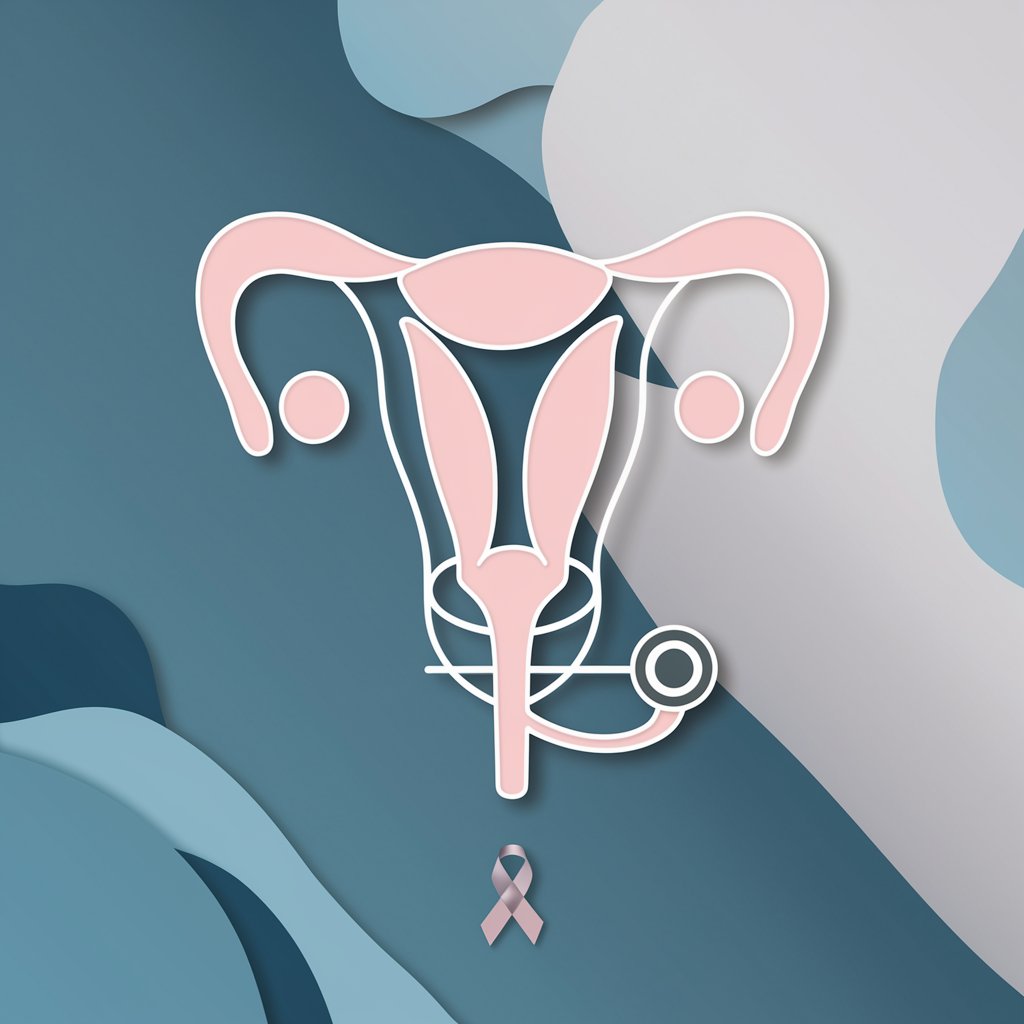Endometrial Cancer - Endometrial Cancer Insights

Welcome! I'm here to provide detailed information on endometrial cancer.
Empowering Endometrial Cancer Understanding with AI
What are the primary risk factors for developing endometrial cancer?
Can you explain the common symptoms associated with endometrial cancer?
What are the current treatment options available for endometrial cancer?
How is endometrial cancer diagnosed and what tests are involved?
Get Embed Code
Detailed Introduction to Endometrial Cancer
Endometrial cancer is a type of cancer that arises from the endometrium, the inner lining of the uterus. This cancer is primarily caused by an imbalance of hormones, specifically an excess of estrogen relative to progesterone, which can lead to the abnormal growth of endometrial cells. Common risk factors include obesity, age (most common after menopause), use of estrogen-only hormone replacement therapy (HRT), history of polycystic ovary syndrome (PCOS), and genetics (such as Lynch syndrome). Symptoms often include abnormal uterine bleeding, pelvic pain, and, in advanced stages, weight loss and anemia. The primary diagnostic tools include pelvic examination, transvaginal ultrasound, and endometrial biopsy. Treatment varies depending on the stage and may involve surgery, radiation therapy, hormone therapy, and chemotherapy. For example, in early stages, a hysterectomy (removal of the uterus) may be curative, while advanced cases might require a combination of treatments. Powered by ChatGPT-4o。

Main Functions and Use Cases of Endometrial Cancer Services
Diagnosis and Screening
Example
Utilizing transvaginal ultrasounds and biopsies to detect cancerous cells
Scenario
A postmenopausal woman experiencing abnormal vaginal bleeding undergoes these procedures to confirm a diagnosis of endometrial cancer.
Treatment Planning and Management
Example
Developing a personalized treatment plan that may include surgery, radiation, hormone therapy, and chemotherapy
Scenario
For a patient diagnosed with early-stage endometrial cancer, a gynecologic oncologist may recommend a hysterectomy followed by a tailored plan of hormone therapy to address specific cancer characteristics.
Follow-up and Survivorship Care
Example
Regular follow-ups including physical exams and imaging tests to monitor for cancer recurrence
Scenario
After completing treatment, a patient undergoes regular pelvic exams and, if symptoms suggest recurrence, further imaging tests like CT scans or MRIs to ensure the cancer has not returned.
Educational Resources and Support Services
Example
Providing access to detailed educational materials and support groups for patients and their families
Scenario
Newly diagnosed patients are offered resources to understand their condition and treatment options, and are connected with support groups for emotional and psychological support.
Ideal Users of Endometrial Cancer Services
Patients and Survivors
Individuals diagnosed with endometrial cancer or those who have completed treatment. These services offer them diagnostic, treatment, and follow-up care, along with educational resources and support groups to help manage their condition and improve their quality of life.
Healthcare Professionals
This includes gynecologists, oncologists, nurses, and other medical staff involved in the care of patients with endometrial cancer. They benefit from specialized tools and information to provide evidence-based care, stay updated on the latest research and treatment modalities, and facilitate patient education and support.
Researchers and Academics
Those involved in the study of endometrial cancer's etiology, progression, treatment, and outcomes. They utilize detailed data and case studies from endometrial cancer services for their research projects, contributing to the body of knowledge and potentially developing new treatments and interventions.

How to Use the Endometrial Cancer GPT
Start Your Journey
Begin by accessing a trial at yeschat.ai, offering immediate access without the need for login or ChatGPT Plus.
Identify Your Needs
Determine the specific information or assistance you require regarding endometrial cancer, such as understanding symptoms, diagnosis methods, or treatment options.
Engage with the Tool
Utilize the chat interface to ask your detailed questions. Be specific to ensure the responses are as informative and relevant as possible.
Review Responses
Carefully read the provided information. It's designed to be comprehensive and medically accurate for educational purposes.
Follow Up
If you have additional questions or need clarification on a topic, don't hesitate to ask follow-up questions for deeper understanding.
Try other advanced and practical GPTs
Cleaners
Streamlining cleanliness with AI-driven advice

BRAVE COACHES
Empowering growth with AI-driven coaching

Lumière sur Dead by Daylight
Elevate Your Dead by Daylight Game with AI-Powered Insights

FUTUR FOOD
Empowering Sustainable Dietary Choices with AI

Poetry Streamer
Unlocking the Essence of Chinese Poetry with AI

Vegan Recipes
Explore, cook, and enjoy vegan delights.

Dog Bed
Empowering pet owners with AI-powered dog bed insights.

Blog Coach
Empowering Your Words with AI

Jyotish
Unlock Your Cosmic Potential with AI

Year Planner Pro
AI-powered Strategic Planning Assistant

Fax
Unveiling Truths with AI Precision

SQL
Empowering Data Operations with AI

Endometrial Cancer GPT: Detailed Q&A
What causes endometrial cancer?
Endometrial cancer is primarily caused by genetic mutations in the cells of the endometrium, leading to uncontrolled cell growth. Factors that can increase the risk include obesity, estrogen exposure, age, and a history of endometrial hyperplasia.
How is endometrial cancer diagnosed?
Diagnosis involves a combination of pelvic exams, imaging tests like ultrasound, and endometrial biopsies. Advanced stages may require additional imaging tests to assess the spread of the cancer.
What treatment options are available for endometrial cancer?
Treatment varies based on the cancer stage and may include surgery, radiation therapy, hormone therapy, and chemotherapy. Early stages often involve hysterectomy, while advanced stages might require a multimodal approach.
Can lifestyle changes reduce the risk of endometrial cancer?
Yes, maintaining a healthy weight, managing hormone levels, and regular physical activity can lower the risk. Use of oral contraceptives for extended periods has also been shown to reduce risk.
What is the role of genetics in endometrial cancer?
Genetics play a significant role, especially in hereditary syndromes like Lynch syndrome, which significantly increases the risk. Genetic testing can identify individuals at high risk for targeted screening and prevention strategies.
